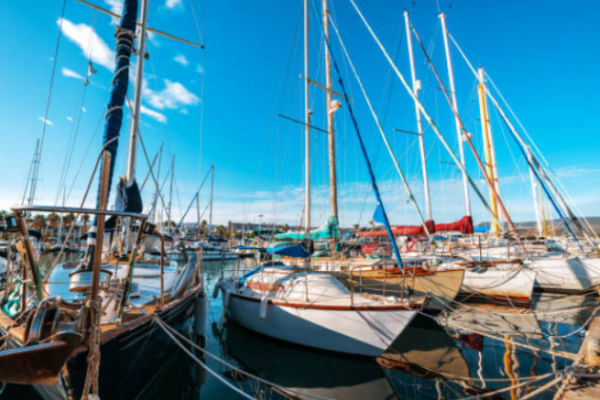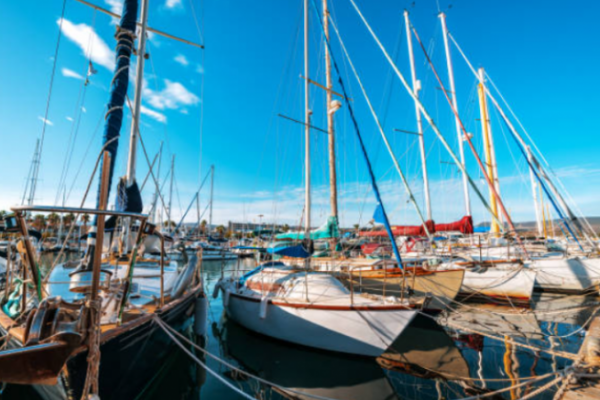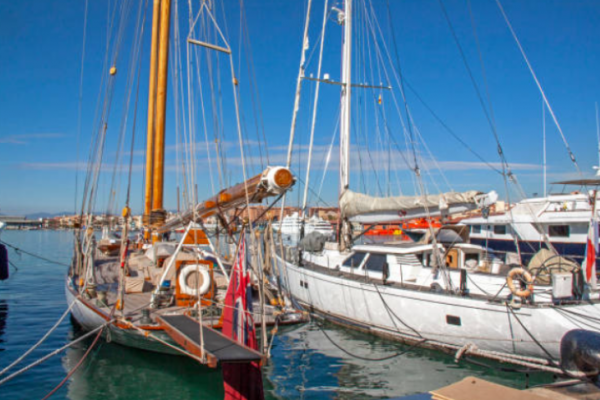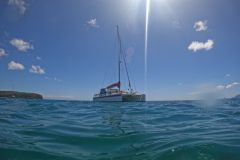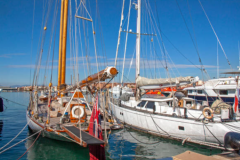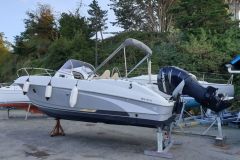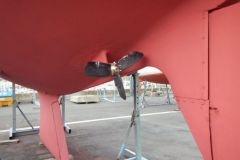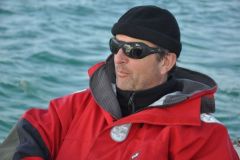The world of yachting is based on trust: the trust you place in your boat, but also in the expert who measures it. Jean-Claude Frantz, a specialist in marine and riverboat surveying, looks back on a career marked by high technical standards and a quest for independence. Here, this seasoned professional shares his vision of the profession, the skills essential to its practice, and the future challenges facing the profession.
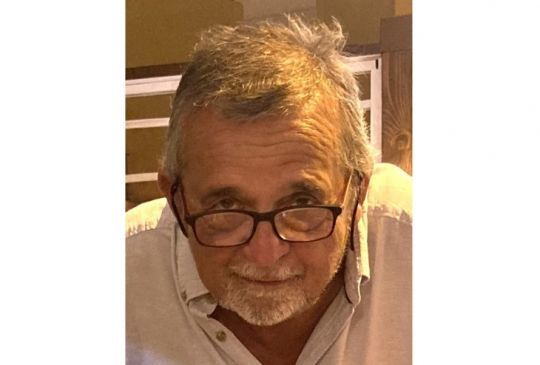
Can you tell us about your career path, from your early years to your specialization in marine surveying?
The sea has always exerted its power of attraction and influenced my choices. After my advanced technical studies, a long period of professional activity in Africa followed, mostly by the ocean, with vacations in France in the form of beautiful cruises on my sailboat.
Back home, I moved to the Mediterranean, to a large marina in the immediate vicinity of the Canal du Midi, and took over a used boat brokerage business. As the years went by and my skills grew, the business evolved into a marine and river yachting consultancy. For several years now, I've been devoting myself exclusively to civil and legal appraisals, and to passing on the experience I've acquired.
What do you think defines a good marine surveyor?
The marine surveyor's job is easy to get into, but difficult in practice. No diploma is required, there are no restrictive regulations, and no specific training is mandatory. What you do need is solid, diversified technical knowledge, modern and adapted working methods, curiosity, humility, rigor, advanced organizational skills, a taste for human contact, intellectual honesty, a very open concept of working hours, a taste for solo work and the absence of hierarchy.
An expert is first and foremost a lover of the sea, which he or she has come into contact with in one way or another, an admirer of elegant hulls resting on a berth somewhere, or of a beautiful unit moored in a harbor. That's a good start... You don't become a marine surveyor just to practise a trade, but above all to blend into a magnificent environment that will be present in your life every day, and which should enable you to live your choices to the full.
Why have you chosen not to be tied to an insurance company?
From the outset, the question was whether to work in the "technical" field with objectivity, or in the "claims" field in partnership with insurance companies. I quickly opted for the "technical" side, which also gave me free access to legal expertise after a while.
I've never regretted my freedom of choice in my work. For several years now, I've been choosing my assignments according to their compatibility with my skills, my preferences and the constraints of the job, which doesn't prevent me from occasionally handling contradictory expert appraisals on behalf of clients or insurers, but this represents only a small part of my activity.
What types of boats do you appraise most often? Is there a significant difference between appraising a classic sailboat and a modern multihull?
The expertise business corresponds more or less to the yachting market, and this market has been evolving for many years. Sailboats, or motorboats, are getting bigger and bulkier, more comfortable, much more equipped with comfort equipment, navigation aids, modern engines, everything... In my opinion, the heart of today's market is the boat that allows you to cruise quietly and live comfortably in port, as if in a second home. Second-hand boats of intermediate size, whether sail or power, now make up the bulk of my business, in my region or elsewhere. It's classic appraisal on and with standard, well-known equipment most of the time, with the occasional surprise, both good and bad. Modern multihulls belong to a slightly different world, with specific architectures and designs, different materials and different buyers with large-scale projects, which doesn't change the investigation protocol much, provided you know these boats well. As far as I'm concerned, the "multi" represents a small proportion of my pre-transactional activities.
What do you see as the major challenges ahead for marine surveyors?
Securing skills on three levels: technical, legal and objective. With the pace of technological change accelerating, manufacturing methods evolving and production going global, the work of the marine surveyor is likely to become increasingly specialized, requiring ever more complex upgrades. Specific training courses on new propulsion systems, on-board electrical power, navigation aids, "new" risks... are already being developed. The same applies to information processing tools, with laptops, tablets, special software for generating automatic reports, tick-box choices and pre-formatted sentences. The uberization of the expert function is advancing apace. It is to be hoped that the "human" expert will remain the last decision-making link in the expert function, but the practice of his art will become increasingly complex. Indeed, it will be difficult to imagine them practicing without ongoing training, whether technical or legal, without civil or judicial tutoring, without participating in expert appraisals with "old hands", without assistance, without advice.

 /
/ 